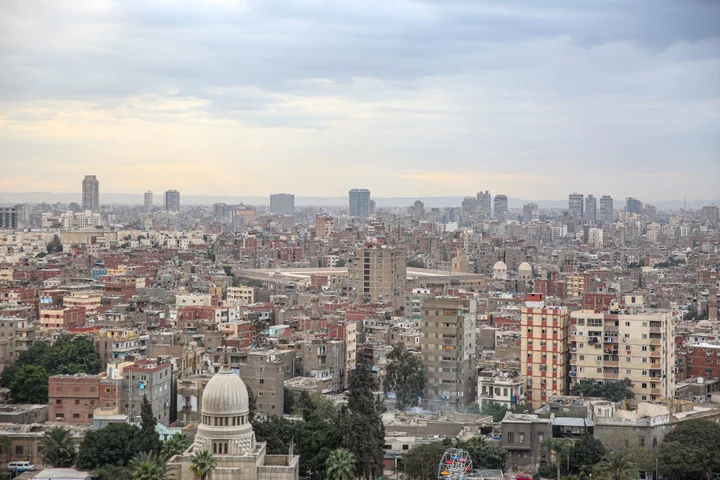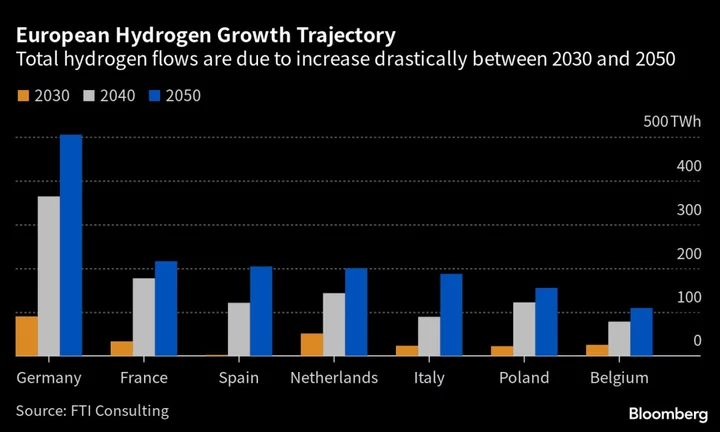Egypt’s credit score was downgraded by Moody’s Investors Service to one of the lowest rungs of speculative grade amid what the ratings firm called “increasingly constrained” policy options to rebalance the economy without aggravating social risks.
Moody’s lowered its assessment of Egypt’s sovereign debt by one notch to Caa1, concluding a review for downgrade initiated in May, according to a Thursday statement. That puts the nation on par with countries like Bolivia and Nigeria, according to data compiled by Bloomberg. The outlook is stable.
The downgrade “reflects the government of Egypt’s worsening debt affordability trend and the persistence of foreign currency shortages in the face of increasing external debt service payments over the next two years,” the ratings firm said.
Earlier, the International Monetary FundF’s managing director, Kristalina Georgieva, said Egypt will “bleed” precious reserves unless it devalues its currency again, as she praised other steps her institution’s second-largest borrower has taken to right its stricken economy.
Read More: IMF Boss Says Egypt to ‘Bleed’ Reserves Unless It Devalues
Egypt’s ranking from Moody’s is now two notches lower than its assessment from S&P Global Ratings and Fitch Ratings. Bonds rated Caa “are judged to be speculative of poor standing and are subject to very high credit risk,” according to Moody’s.
On Edge
The decision underscores the perilous situation facing a country that’s all but locked out of global capital markets and struggling to pass the IMF’s review of its $3 billion rescue program. The risk premium that investors demand to hold Egypt’s dollar debt has widened by 480 basis points this year to 1,277 basis points over Treasuries.
Investors were already on edge over the status of the IMF’s delayed March review or the assessment that was due in September. The impasse means Egypt can’t unlock about $700 million in loan tranches or access a $1.3 billion resilience fund — financing that could potentially spur major Gulf investments.
Authorities were making serious efforts to avoid a downgrade into the equivalent of CCC territory — a step that “could bring forced selling into hard-currency bond markets,” Jean-Michel Saliba, Middle East and North Africa economist at Bank of America Corp., said earlier.
Moody’s added that the government’s track record of implementing fiscal reforms and the launch of the asset sale strategy support a stable outlook. The ratings firm said it expects continued financial support from the IMF if the nation complies with established conditions, as well as backing from the Gulf Cooperation Council.
Egypt has devalued the pound three times since early 2022, with the currency losing almost half its value against the dollar. Georgieva said it’s delaying the inevitable by holding off from doing so again and the longer it waits, the worse it will get.
--With assistance from Netty Ismail.
(Updates with other credit assessments in fourth paragraph.)









